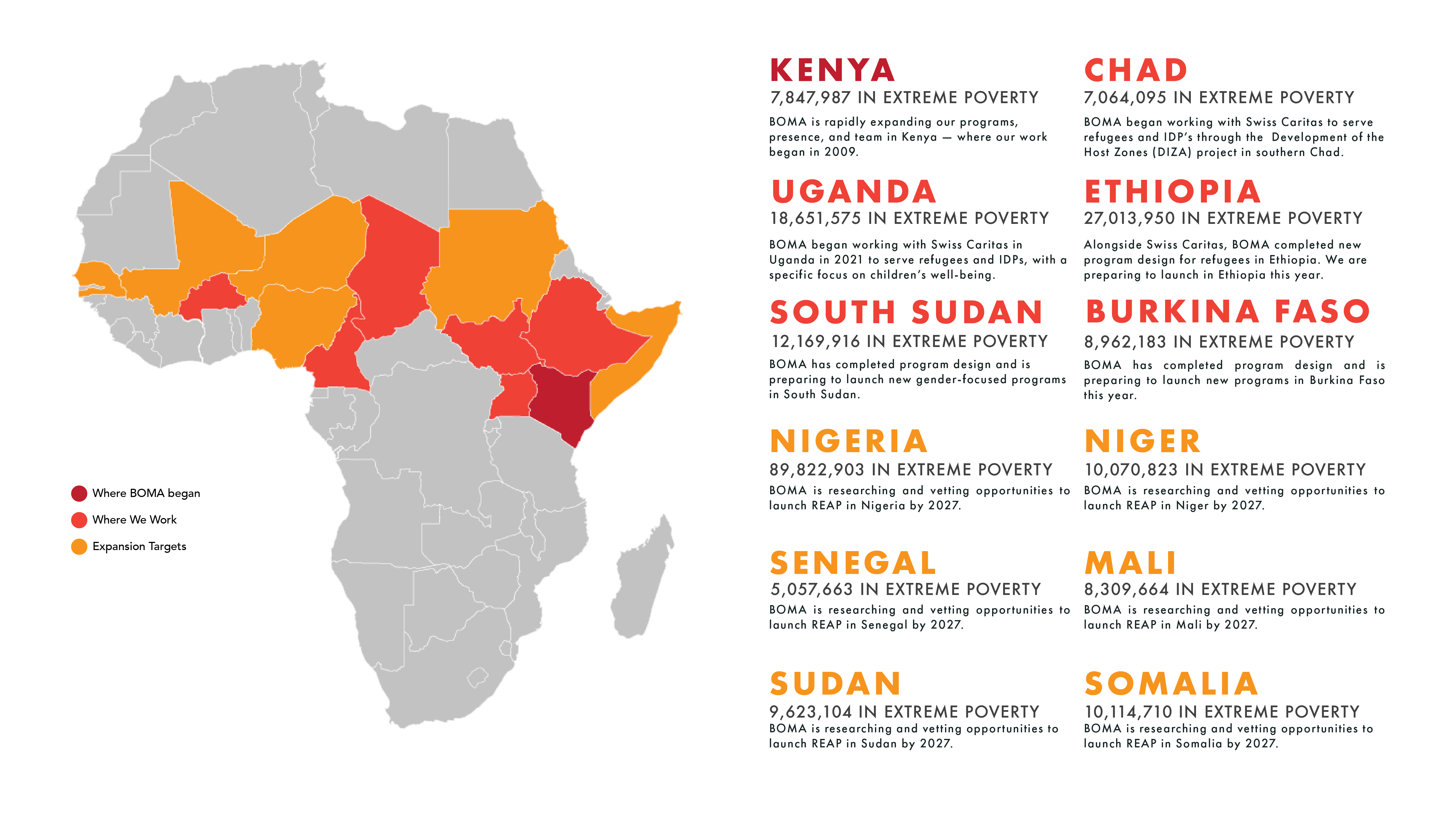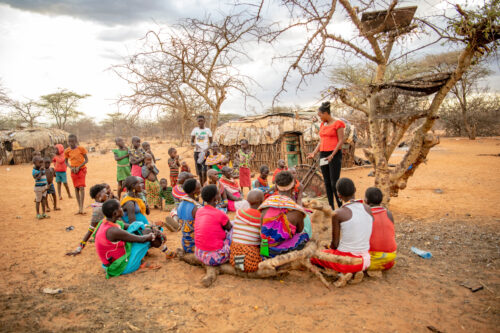Where We Work
BOMA works in the remote rural drylands of Africa, an area which comprises 40% of the continent and is home to more than 425 million people. In the rural areas of Ethiopia, Kenya, Somalia, Uganda and Tanzania alone, 13,335,811 women and children live in extreme poverty. In one of the harshest environments on earth, with one of the highest extreme poverty rates, infrastructure is minimal, with few paved roads and no formal banks or other institutions.
For some the distance to the nearest health clinic is as much as 300 kilometers. There are no large employers, and residents lack the education and skills required to seek jobs in other parts of the country. Recurring drought—the consequence of climate change—has devastated grazing lands, livestock and livelihoods, and driven pastoralist families deeper into poverty. While the men travel for weeks at a time with the livestock herds, looking for scarce water and grazing terrain, the women and children are left alone in the villages without a stable source of food or income. For those who do find work the average income is less than one dollar a day.

SCALING BOMA’S WORK
In pursuit of BOMA’s goal to end extreme poverty in the drylands of Africa, we’re adapting the REAP model to serve a number of new populations in new places — with rigorous attention paid to evidence of impact. In 2021, BOMA expanded our work to multiple new countries: Burkina Faso, Cameroon, Chad, Ethiopia, Uganda, and South Sudan. BOMA is expecting to expand into five additional new countries in 2024, with further expansion targeted by 2027.

Direct Implementation
BOMA is expanding the direct implementation of our work throughout Africa’s drylands. We’ve recently designed and piloted a number of adaptations to our proven REAP approach, including programs for youth, refugees, and populations impacted by climate change.

Government Adoption
The REAP model began in Kenya, and BOMA is now working with the Government of Kenya and other partners to achieve government adoption of our model. For the BOMA model to be truly sustainable, it must be incorporated into government social safety nets.

Strategic Partnerships
BOMA is proud to work with world-class organizations including CARE, Mercy Corps, BRAC and more in an effort to end extreme poverty in the drylands of Africa.
“The most urgent challenge in the social sector is not innovation, but replication. No idea will drive big impact at scale unless organizations—a lot of them—replicate it..It turns out that replication matters even more than innovation when it comes to impact at scale.”
Kevin Starr